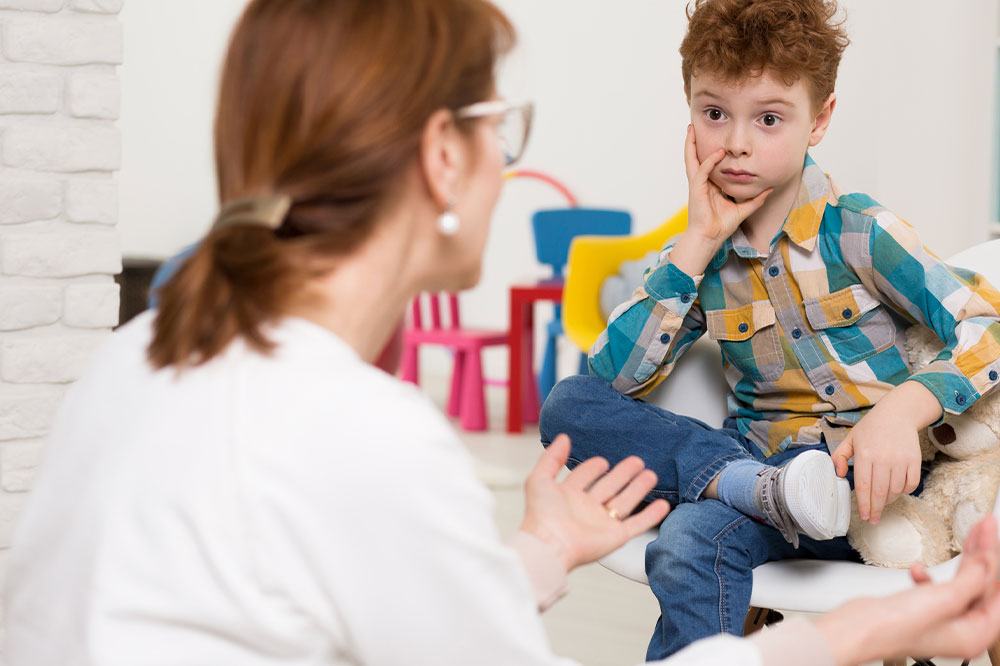
Causes, symptoms, and diagnosis for autism
Autism is a complex developmental disorder comprising persistent challenges with repetitive behavior, interests, and social communication. Though considered a lifelong disorder, the extent of impairment in functioning differs among individuals. Those with autism might interact, learn, and behave in ways that are different from those of other people. They might experience challenges in social interactions when it comes to interpreting and employing verbal and nonverbal communication. Listed below are the causes, signs, and diagnosis.
Causes
There is no one specific cause for autism. Given its complexity and variation in severity and symptoms, there are several causes. One’s environment and genetics also have a role to play.
Genetics
The disorder may be linked to genetic conditions like Fragile X syndrome or Rett syndrome. Additional genetic variations can influence brain development, impact communication between brain cells, and potentially contribute to the severity of symptoms. These genetic mutations can be either inherited or spontaneous.
Other factors
Such factors are currently being researched to determine their potential role in triggering autism spectrum disorder. They include viral infections, use of certain prescriptions, pregnancy complications, and exposure to air pollutants.
Risk factors
Autism can affect children of all nationalities and races, but some factors aggravate the risk. These include:
Gender
Boys are more susceptible to developing autism than girls.
Familial link
A family history of autism aggravates the risk of having another child affected by the condition. Parents or relatives of individuals with autism may also exhibit mild difficulties with social or communication skills or engage in behaviors associated with the disorder.
Other disorders
Children with some medical conditions have a higher risk of developing autism or related symptoms. These include Fragile X syndrome, Rett syndrome, and tuberous sclerosis.
Extremely preterm babies
The risk is higher in babies delivered before twenty-six weeks of gestation.
Parent’s ages
Children born to older parents may have higher chances of developing autism.
Symptoms
The symptoms can range from severe disability to mild. The below-listed signs are indicators that one’s child is susceptible to developing the condition:
- Lack of consistent response when you call their name or minimal eye contact.
- Absence of broad smiles or joyful expressions by the age of 9 months.
- Limited engagement in activities like smiling, making sounds, and exchanging facial expressions with people around them by the age of 9 months.
- No babbling exhibited by the baby by the age of 12 months.
- Lack of gesture use, such as reaching or waving, by the age of 12 months.
- Failure to participate in interactive games, such as peek-a-boo, by the age of 12 months.
- Absence of meaningful, two-word phrases (excluding imitation or repetition) by the age of 24 months
- Regression or loss of speech, or social skills.
Furthermore, autism symptoms may also include repetitive or restricted interests or behaviors such as:
Your child frequently arranges toys in a line or engages in repetitive play patterns. They display a strong need to adhere to specific patterns and may react strongly to even minor changes in their routine.
You notice that your child demonstrates obsessive interests or interests that are highly unusual.
They may exhibit notable sensory aversions, such as discomfort with loud noises, sensitivity to clothing textures, or being highly selective with food choices.
Your child engages in sensory-seeking behaviors, such as staring at moving objects, sniffing items, or licking objects.
Diagnosis
The doctor will look for signs of developmental delay during routine examinations. If the child depicts any autism symptoms, they will be referred to a specialist who treats this disorder, such as a pediatric neurologist, for further diagnosis and treatment. Since the symptoms vary significantly, a diagnosis is usually challenging. Moreover, there is no specific test to confirm the diagnosis. But a specialist may:
- Observe your child and inquire about the progression and changes in their social interactions, communication skills, and behavior over time.
- Administer assessments that cover hearing, speech, language, developmental level, and social and behavioral aspects.
- Provide structured social and communication interactions to your child and assess their performance based on predetermined criteria.
- Involve other specialists in the diagnostic process to obtain a comprehensive evaluation.
- Consider recommending genetic testing to identify potential genetic disorders that are associated with autism.
Treatment options
Though autism is a lifelong disorder, some treatment options can help manage the symptoms. Ideally, doctors recommend starting the treatment as early as possible. Some suggested treatment options include therapy and prescription treatments.
Prescription treatments
These help provide relief from symptoms like:
- Social withdrawal
- Inappropriate speech
- Anxiety
- Aggression
- Attention problems
- Hyperactivity
- Irritability
Behavioral and development therapy
Autism treatment focuses on psychological, behavioral, or skill training interventions. Behavior analysis, a therapy that aims to teach and reinforce desirable skills and behavior, is a highly helpful treatment option. Other therapies include:
- Verbal behavior therapy
- Cognitive-behavioral therapy (CBT)
- Pivotal response treatment
- Relationship development intervention
In addition to this, doctors may also suggest speech therapy, social skills training, and occupational therapy.




